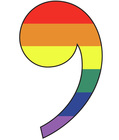We, the congregation of Peace United Church of Christ, declare and commit ourselves to be welcoming to all people.
Our Mission Statement |
The Mission of Peace United Church of Christ is to follow the teachings and values of Jesus as we live in fellowship with other believers, to further the coming of God’s kingdom by enabling people to minister to one another through unconditional love, concern and support. To be committed to influence social policy in such a way that all human beings are treated with dignity, diversity is respected and unity in spirit is fostered. Believing that God has created us with freedom of choice to be our unique selves, to think independently and to act upon our beliefs, and believing that the United Church of Christ has supported and encouraged us, we of Peace Church seek to fulfill our mission in the following ways:
|
Explore the UCC!
|
The United Church of Christ came into being in 1957 with the union of two Protestant denominations: the Evangelical and Reformed Church and the Congregational Christian Churches. Each of these was, in turn, the result of a union of two earlier traditions.
The Reformed Church in the United States traced its beginnings to congregations of German settlers in Pennsylvania founded from 1725 on. Later, its ranks were swelled by Reformed immigrants from Switzerland, Hungary and other countries. The Evangelical Synod of North America traced its beginnings to an association of German Evangelical pastors in Missouri. This association, founded in 1841, reflected the 1817 union of Lutheran and Reformed churches in Germany. The Congregational Churches were organized when the Pilgrims of Plymouth Plantation (1620) and the Puritans of the Massachusetts Bay Colony (1629) acknowledged their essential unity in the Cambridge Platform of 1648. The Christian Churches sprang up in the late 1700s and early 1800s in reaction to the theological and organizational rigidity of the Methodist, Presbyterian and Baptist churches of the time. The Evangelical and Reformed Church, General Council of the Congregational Christian Churches, and the Afro-Christian Convention, united on June 25, 1957, to form the UCC. Through the years, other groups such as American Indians, Afro-Christians, Asian Americans, Pacific Islanders, Volga Germans, Armenians, and Hispanic Americans have joined with the four earlier groups. In recent years, Christians from other traditions, including the Roman Catholic Church, have found a home in the UCC, and so have gay and lesbian Christians who have not been welcome in other churches. Thus the United Church of Christ celebrates and continues a broad variety of traditions in its common life. |
